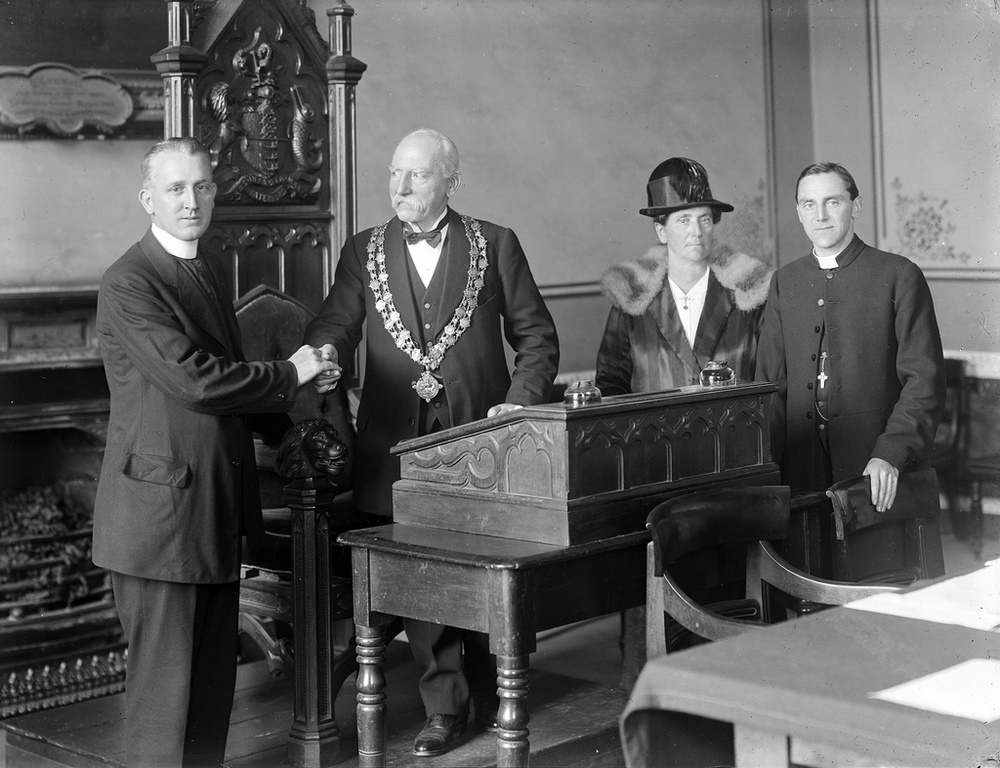 Ridiculed in satirical publications such as Private Eye, caught on camera for YouTube viewers, slammed in the press by cabinet ministers and MPs alike, the issue of members of the public filming council meetings can provoke strong feelings. Here, campaigner and journalist Sarah Hartley from Talk About Local draws out five conclusions from recent events which could help councillors, comms professionals and campaigners find a way through the friction.
Ridiculed in satirical publications such as Private Eye, caught on camera for YouTube viewers, slammed in the press by cabinet ministers and MPs alike, the issue of members of the public filming council meetings can provoke strong feelings. Here, campaigner and journalist Sarah Hartley from Talk About Local draws out five conclusions from recent events which could help councillors, comms professionals and campaigners find a way through the friction.
It’s an issue that’s not often been generating the sort of headlines most local authorities would like to see written about them.
Videos of people in ceremonial chains demanding that cameras be ‘dismantled’, meetings being dissolved rather than hearing important local issues and police having their time wasted on well-meaning citizen doesn’t present local authorities in a good light.
So how has it come to this point?
Some of the confrontations have come about after Eric Pickles, the local government and communities secretary, issued new guidance which was actually designed to clarify the issue by giving explicit rights to film to citizens, journalists and bloggers.
But a closer look at the guidance (full copy here) reveals a grey area - the new guidance only relates to authorities which operate under a cabinet, or executive, structure and so many authorities do not fall under its net.
Because of that, as an interested resident, simply bowling up to your nearest parish council with a smart phone probably won’t get you very far. But how should councils react when/if local people do turn up? Can a constructive understanding be achieved?
Having just succeeded in having my own local council agree to allow filming, here’s five lessons I’ve learned along the way:
-
Make the request in writing
Sending a request to the leader of the council and an appropriate officer gets the ball rolling and the agenda on the table. It can be a frustratingly slow process as the request is passed to legal - to the committee chairs - the group leaders etc. etc. but with every turn, the issue gets in front of more people and so elected members have to consider their own motives and reasons.
2. Find advocates
There’s bound to be someone within the authority who is in support, that be could a councillor or council official. I was fortunate that the town’s mayor came out very early in the process in support, as did the leader and deputy but in other places its been the comms staff who’ve got behind the initiative as seen with Nigel Newman, head of communications at Telford and Wrekin Council: “when members of the community came forward and offered, rather than find reasons we couldn’t, we saw it as a great opportunity.” There's a Google hangout here with more.
3. Take time to explain
Those of us who use social media every day and make content as part of our jobs perhaps sometimes forget that it’s all still a new world for many. Explaining how things are constructed and why anyone would want to tweet or film can take some time (and patience) but taking that step away could help reach an agreement. As part of my approach to the council I made them a short information leaflet which is available to adapt if needed here and created a presentation for a workshop of interested councillors and officers.
4. Share the process
Write about what’s happening on your blog or website. As well as keeping people in the loop about the council’s processes, it also allows for a wider input from the community. Contact the local paper and the local BBC radio stations for example and tell them about the campaign - every editor in the country should have an interest in and passion for keeping local authorities accountable and open as the rules impact on their activity as well.
5. Listen
There were issues raised in pursuing this request over the past six months that were things I’d never encountered before. The most bizarre (to my mind at least) being a fear that people’s faces could be edited by internet viewers and replaced with horses or other creatures! Aside from the outlandish, most questions and fears can be easily answered, although one objection to filming that’s been raised did leave me stumped - “no-one in my ward can receive broadband or 3G.”
Sarah Hartley is managing director at Talk About Local which helps people find a powerful online voice for their community that they own and run.
